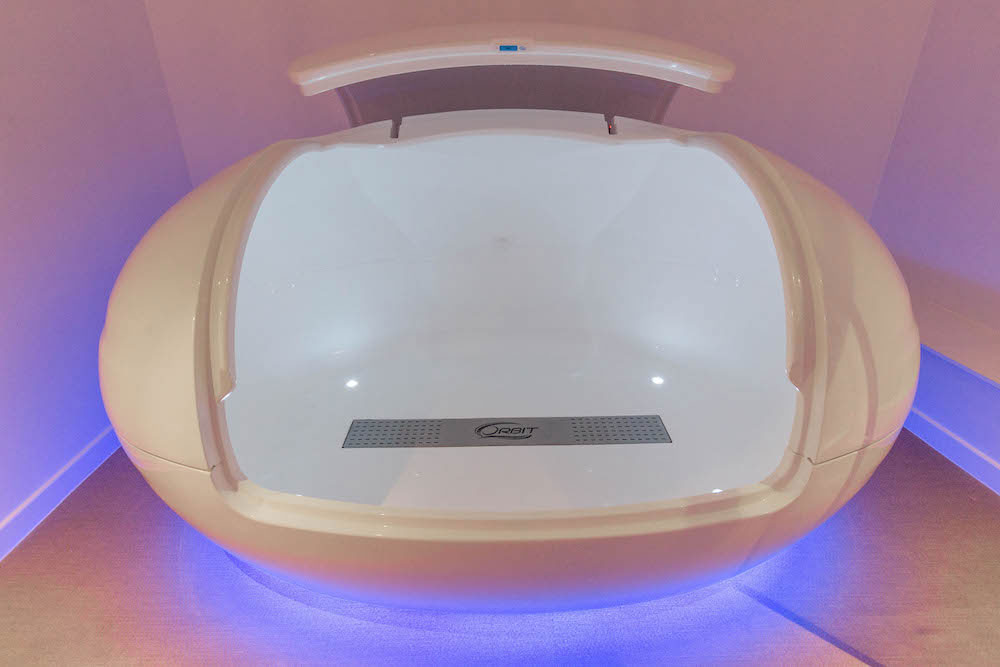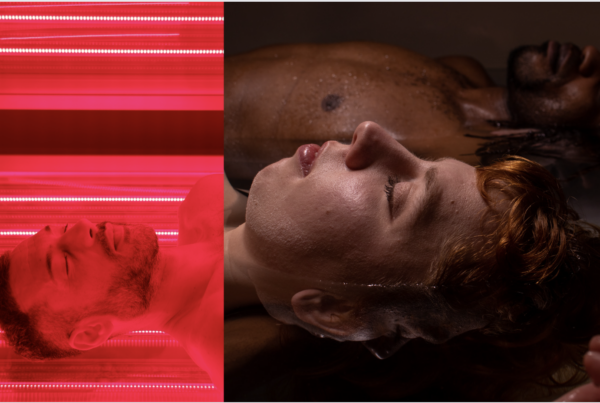Float therapy has been consistently proven to relieve stress and anxiety, but what is it, and is sensory deprivation actually a thing?
Floatation tanks are often referred to as ‘sensory deprivation tanks’, though purists might say the correct term should be ‘restricted environmental stimulation therapy’ (floatation REST). The restriction of sensory input can have some amazing benefits, though people who’ve experienced it will often see that instead of feeling sensory deprivation, their senses become significantly sharper through the experience.
Also, while the term ‘sensory deprivation’ can have negative connotations related to military interrogation or torture techniques, floating for 60-90 minutes in a world-class float tank of ours is likely to be the most peaceful, comfortable thing a person has ever experienced.
Beneficial Effects
Though floating is still relatively small as an industry in the UK, it’s been around since 1954, helps millions of people worldwide each year, and as such there is a significant body of research that supports its use as a therapy.
clinicalfloatation.com is a great starting point for anyone wanting to dig into the research proving efficacy – from there, you can find research supporting beneficial effects for the treatment of anxiety, stress, pain, sleep issues, plus smaller studies suggesting that floating can improve inflammation, blood pressure, focus, and even creativity.
This broad range of benefits can not only alleviate symptoms for people with an anxiety disorder or chronic pain, but it can also and does accelerate recovery of athletes, increase focus for an important event, and speed up the ability to learn (the US military uses float therapy to both treat PTSD and cut language learning times by 75%).
There are further benefits speculated, with many believing that floating in warm water saturated with 550KG of Epsom salt can help balance your body’s magnesium levels (transdermal absorption of magnesium has not been definitively disproven or proven).
Also, as floating can be thought to deliver super-charged rest, there could be many possible long-term health benefits associated that are already shown by reducing stress and improving rest.
Getting enough rest is important for maintaining a healthy immune system, and it seems likely floating can help with that.
What is it like?
Due to the growing popularity of float therapy, there are a growing number of offerings claiming to offer deep relaxation via floatation, though for the full experience (that replicates the precision environment most research has been conducted within) it’s strongly recommended to go to a dedicated float centre, such as Float Hub.
A well-run float centre will have a precision-engineered environment with temperature, salinity, filtration, and cleanliness correctly maintained, to offer an experience that can’t be matched by group pools, dry beds, or even bean bags (which have all been marketed as float therapy!).
On your first visit, you’ll get a socially-distanced tour of our beautiful centre, every aspect of which has been thought out to reduce noise, stress, and distractions.
For the float session or ‘sensory deprivation tank’ session itself, you’ll be shown to a private float room with a shower, soaps, towels, and a huge float pod that’s been freshly cleaned, filtered, and refilled for your session.
As you shower, you’ll notice the pod starts to fill up with the silky-smooth Epsom salt solution. Once full you’ll likely be inside with the pod closed (or keep it open, if you prefer), and your session will commence with a sunset accompanied by soothing sounds, to ease you into your float session.
It often takes a few moments to settle into stillness. Focus on your breath can help to more quickly reach deep relaxation, as you’re perfectly suspended in space with no external pressures or stimuli.
No one session is the same, but usually, after around 40 minutes, even beginners will reach something called ‘theta state’ whereby brainwaves have been shown to slow down (to ‘theta waves’) as the body enters a state of healing more commonly found in deep sleep.
Despite being fully awake, not having to respond to gravity, light, sound, stress, all at perfect skin temperature, let’s the body & brain go to work on natural healing processes.
The benefits are many, though floating can re-balance your hormones & nervous system – stress hormone cortisol & adrenaline go down, plus dopamine & beta-endorphins increase. The reported combined effects are usually feeling happier, calmer, with less anxiety, and reductions in chronic pain.
You might have heard reports of hallucinations experienced in a sensory deprivation tank session. Though this is certainly an interesting topic (which would easily fill another blog post!) with different views, reports are rare, research is speculative, and from personal experience, we think it’s probably simply reaching a dream-like state.
The fact that floating has been shown to help even beginners to mindfulness or meditation reach experience theta waves (usually the reserve of experts), means it’s also increasingly popular in helping everyday people reach the benefits of meditation, that they might ordinarily find difficult.
Is sensory deprivation for me?
Just about anyone can experience benefits from sensory deprivation. Even before living in stressful times of a global pandemic, the constant stimulation of smartphones and modern life had created widespread problems with sleep and stress.
Sensory deprivation in a modern float tank has been described as ‘the ultimate digital detox’. It simply frees the mind & body up to focus on recovery, and the body will usually try to deliver exactly what you need.
About Float Hub
We founded as a purpose-driven company, driven to deliver deeper rest for all, whilst playing an active role in supporting our local community.
As we’re currently living through times of increased stress, we think floating is more important now than ever before, and strive to deliver the ultimate experience for maximum benefit to mental and physical health.
You can find out more about your first float here, and book a session today here.





